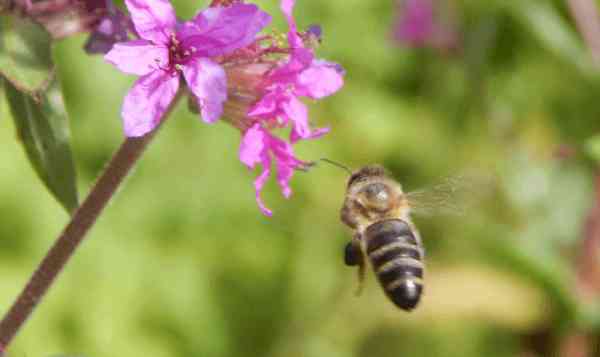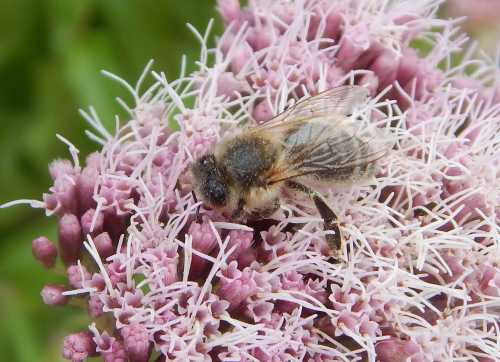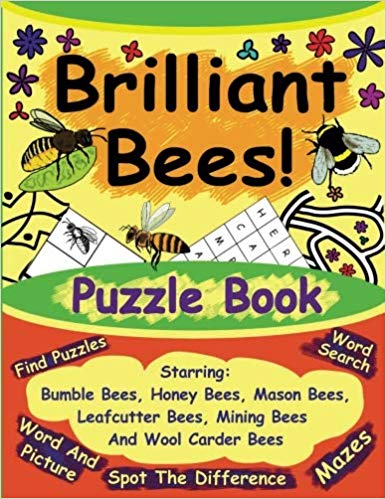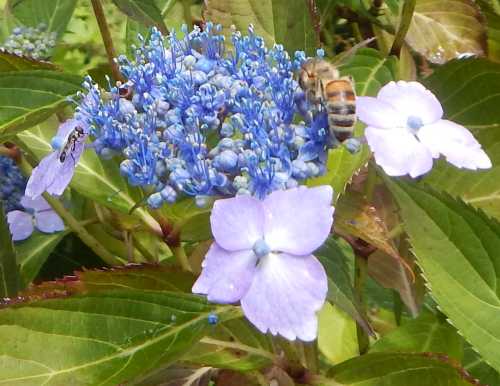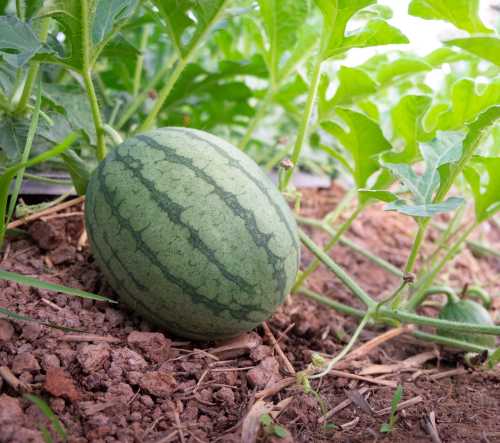Why Are Bees Important To Apple Growers?
Date: 3rd March 2021
Here we’ll look at a number of scientific research papers examining why bees are important to apple growers.
However, the short answer is:
Pollination by insects (and especially solitary bees and honey bees), increases apple yield and weight, as well as fruit quality.
Research suggests that a lack of pollinators (in this case, especially bees) has a negative impact on apple production, which in turn has financial impacts.
Research Exploring Importance Of Bees To Apple Growers
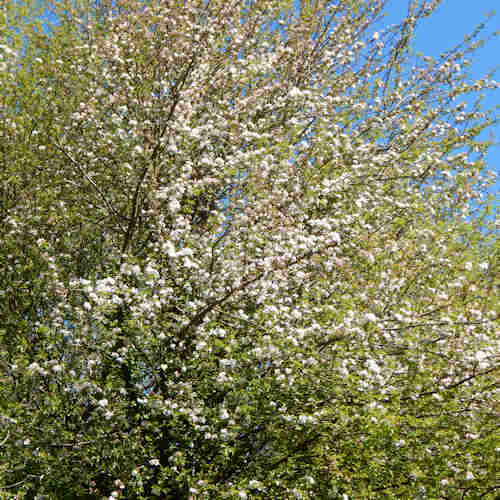
2012 New Zealand Field Study, Palmer-Jones & Clinch1
In this study, it was concluded that fruit set of a Cox Orange Pippin variety of apple
depended almost entirely upon insect visitation to flowers, and that honey bees
were by far the most important pollinators.
2013 UK Field Study, Garratt et al2
Showed that solitary bee activity in Cox apple orchards in Kent UK, made a
significant contribution to pollination.
They also demonstrate the importance of insect pollination for increasing
fruit set, seed set, increased apple weight and higher sugar content in Cox
apples.
2013 Ramírez, Fernando & Davenport, Thomas3
State that: “The most common insect
pollinator of apple is the honey bee.
Other effective pollinator species include Hymenopterans [includes bees and wasps], Dipterans [flies] and Coleopterans [beetles]”.
2013/14 UK Field Study, Garratt et al4
This study examined the role of insects on apple pollination on two varieties of apples: Gala and cox. The researchers conclude:
“…..insects are essential in the production of both varieties of apple in the UK and contribute a total of £36.7 million per annum, over £6 million more than the value calculated using more conventional dependence ratio methods. ……
Insect pollination not only affects the quantity of production but can also have marked impacts on the quality of apples, influencing size, shape and effecting their classification for market.”
Further, the scientists showed that outputs in UK Gala orchards could
be limited by sub-optimal pollination by ~£6,500/ha.
2016 UK Field Study, Garratt et al5
Found that solitary bees provided the highest contribution to pollination of
apples in the orchards studied. The
contribution of insect pollinators to the economic output in Cox, Gala, Bramley
and Braeburn apple varieties was estimated to be £92.1M across the UK, with
contributions varying widely across taxa: solitary bees (£51.4M), honeybees
(£21.4M), bumblebees (£18.6M) and hoverflies (£0.7M).
2020 Worldwide importance of insect pollination in apple
orchards: A review, Pardo & Borges6
The researchers state that apple trees depend greatly on
insect pollination from bees and hoverflies to achieve high yields and obtain
fruits of acceptable marketable quality.
They assert there is “Substantial evidence from qualitative analyses supports the fact that insect pollination is essential for ensuring both yields and fruit quality in apple orchards across different regions.
Besides, a significant proportion of studies showed that wild pollinators are abundant in apple orchards and they are frequently more effective pollinators than honey bees”.
References:
(1) T. Palmer-Jones & P. G. Clinch (1966) Observations on the pollination of apple trees (Malussylvestris Mill.), New Zealand Journal of Agricultural Research, 9:2, 191-196, DOI: 10.1080/00288233.1966.10420773
(2) M. P. D. Garratt, C. L. Truslove, D. J. Coston, R. L. Evans, E. D. Moss, C. Dodson, N. Jenner, J. C. Biesmeijer and S. G. Potts. POLLINATION DEFICITS IN UK APPLE ORCHARDS. Journal of Pollination Ecology, Vol 12, 2014.
(3) Ramírez, Fernando & Davenport, Thomas. (2013). Apple pollination: A review. Scientia Horticulturae. 162. 188–203. 10.1016/j.scienta.2013.08.007.
(4)Garratt MP, Breeze TD, Jenner N, Polce C, Biesmeijer JC, Potts SG. Avoiding a bad apple: Insect pollination enhances fruit quality and economic value. Agric Ecosyst Environ. 2014;184(100):34-40. doi:10.1016/j.agee.2013.10.032
(5)Garratt MP, Breeze TD, Boreux V, et al. Apple Pollination: Demand Depends on Variety and Supply Depends on Pollinator Identity. PLoS One. 2016;11(5):e0153889. Published 2016 May 6. doi:10.1371/journal.pone.0153889
(6) Pardo, Adara & Borges, Paulo. (2020). Worldwide importance of insect pollination in apple orchards: A review. Agriculture Ecosystems & Environment. 293. 10.1016/j.agee.2020.106839.
